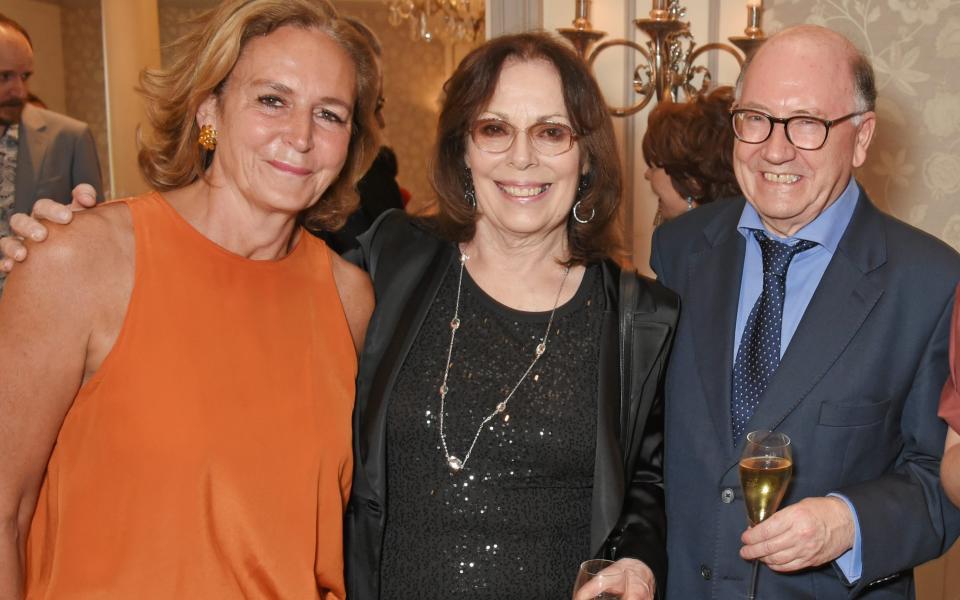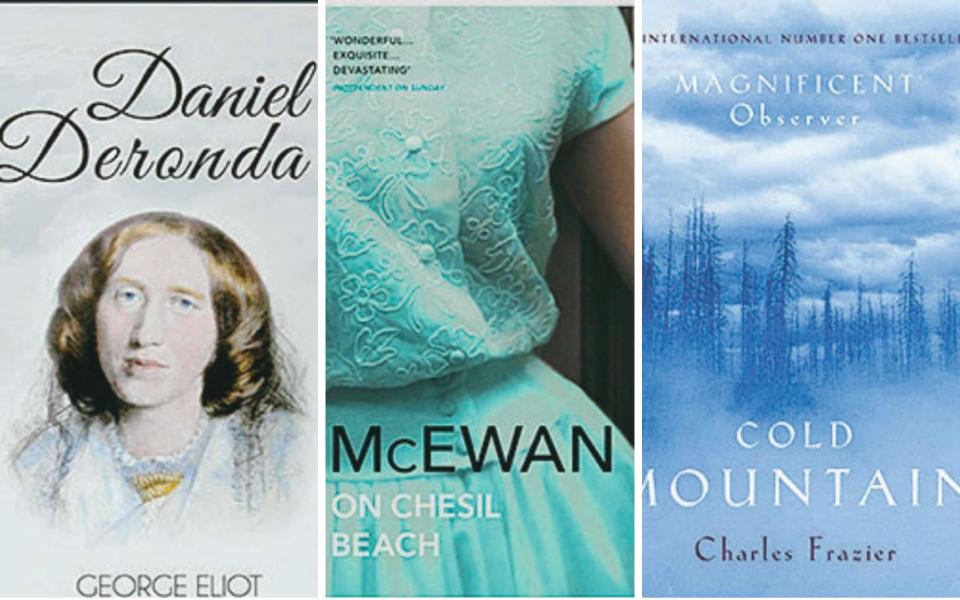Rose Tremain: My cancer battle - and the unexpected silver lining of lockdown

The questions echo across the nation. The weary old UK is interrogating itself in a Plague Year, trying to understand what we’re learning about ourselves when kept away from so many of those we love and from the activities which give our lives meaning and solace. As far as I can judge, we’ve all discovered or rediscovered a love of growing vegetables. Monty Don is, rightly, a national hero for suggesting we can nurture courgettes on a window sill and plant out chillipeppers under a skylight. But the bee buzzing the loudest inside our PPE bonnets is the one telling us that writers (past and present) ought to be valued just a little bit more than they are in this country, because what are the things that are bringing us the greatest amount of comfort in these dark times? Books!
Some of us always knew it: reading frees the mind from its conversation with the insistent self. It can teach, challenge, comfort and inspire. It can also be irritating, disappointing, terrifying or shocking. But come on, we’re grown-ups, and what counts is the journey we embark upon when we open a book. No queuing at check-in. We arrive in seconds at our destination.
Does it matter if we find ourselves in the gravel sweep of a Jilly Cooper Bonking Hall or on the fog-shrouded pavements of Dickens’s London, with the loquacious Newark family of Philip Roth’s Nathan Zuckerman, beside a frozen lake in Canada with Marilynne Robinson or even down some toilet bowl or other with Irvine Welsh?
No. I don’t think it does. Literary triage is not the point here. What matters is that we’re somewhere else. Our bodies may be locked in under the same dreary roof but our thoughts are flying free in a new continent. In this always surprising place, we may sometimes recognise our own suffering or our own joy and murmur to ourselves, ‘yes, that’s just how it is’.
These glimpses of a singular personal truth are one of a hundred consolations which fiction offers and the image in this mirror, the one that both is and is not us, can be so thrilling that it makes us stop and wonder. But more often we’re taken along roads we’ve never travelled, and this is what, in our recent incarceration, we have come to appreciate more than ever.
My own lockdown reading has been sustained, but it has been a peculiar kind of catching up, because of what happened to me last autumn.

In October 2019 I went into Addenbrooke’s Hospital in Cambridge for the fearsome ‘Whipple’ operation for pancreatic cancer. I had a clever and sublimely courteous surgeon, who made the neatest job possible of removing parts of my pancreas, small bowel and stomach, but this is major surgery and my recovery was very slow. It wasn’t that my wounds didn’t heal, but that I was unable to progress successfully from intravenous feeding to real food and every day for a long time I was slain with nausea, only relieved intermittently by strong medication which caused extraordinary hallucinations.
Under these physical conditions you might think, as I did, that reading would provide the route to a yearned-for elsewhere. I’d taken several books into the hospital, notably Bob Woodward’s Fear: Trump in the White House, Paul French’s North Korea: State of Paranoia, John Lahr’s biography of Tennessee Williams and – for those lighter moments – The Devil Wears Prada by Lauren Weisberger. But there were hardly any ‘lighter moments’. There was just the never-ending sickness and every narrative I started in the hope of escape from physical suffering seemed, rather, to attach itself to that suffering in a quite astonishing, tentacular way.
Of course, my choices may have been rotten. There’s a lot going on in Trump’s White House to make you puke. The suffering of the North Koreans under successive Great Leaders and Dear Leaders is disgustingly awful. But I couldn’t even manage Lahr’s admirable and witty work. Only Weisberger’s frothy fiction – helped no doubt by a memory of the Prada movie and mental images of one of my life’s heroes, Meryl Streep – gave me a bit of time out. When I finished this I gave it to a fellow sufferer on the ward, but she was having the same problem with reading as I was. ‘Rose’, she said, ‘I just don’t know what’s going on with our poor old brains.’
Now, my ‘poor old brain’ is back in its reading (and writing) mode. In between watering my partner Richard’s and my new apple trees and planting herbs, my contributions to lockdown life have included adapting one of my short stories into a play for Radio 4 in exactly eight days; working on a new novel; re-reading Daniel Deronda, On Chesil Beach, Lark Rise to Candleford, Cold Mountain, The Shipping News and beginning the new Anne Tyler novel, Redhead by the Side of the Road, in which the shortsighted protagonist mistakes a fire hydrant for a very small person. So I’m alright. I can eat real food and the reading and writing of fiction has once again brought me back to some kind of normality and peace.
And oh yes, I’ve also begun a ‘learning poetry by heart’ scheme with a close friend, both of us convinced that poetry safely stored in the mind is one of the greatest gifts we can give to our sanity. Much contemporary poetry is self-conscious prose put through a slicer and hard to retain, but we’ve learned poems by Hardy, Housman, Auden, Yeats, Larkin, Carol Ann Duffy and Denis Glover so far and intend to continue through the rest of autumn. Who knows what peril this country will be in beyond that? All I can safely state is that without books our lives can feel arduous, monotonous and precarious, or as Anne Tyler would say, a bit ‘kerblooey’.
Rose Tremain's reading list

From left to right: Daniel Deronda by George Eliot; On Chesil Beach by Ian McEwan; Cold Mountain by Charles Frazier

From left to right: Redhead by the Side of the Road by Anne Tyler; The Shipping News by Annie Proulx
Rose Tremain is the author of 13 novels including Women’s Prize for Fiction-winner ‘The Road Home’. Her new novel, ‘Islands of Mercy’, is out now (Chatto & Windus, £18.99)
